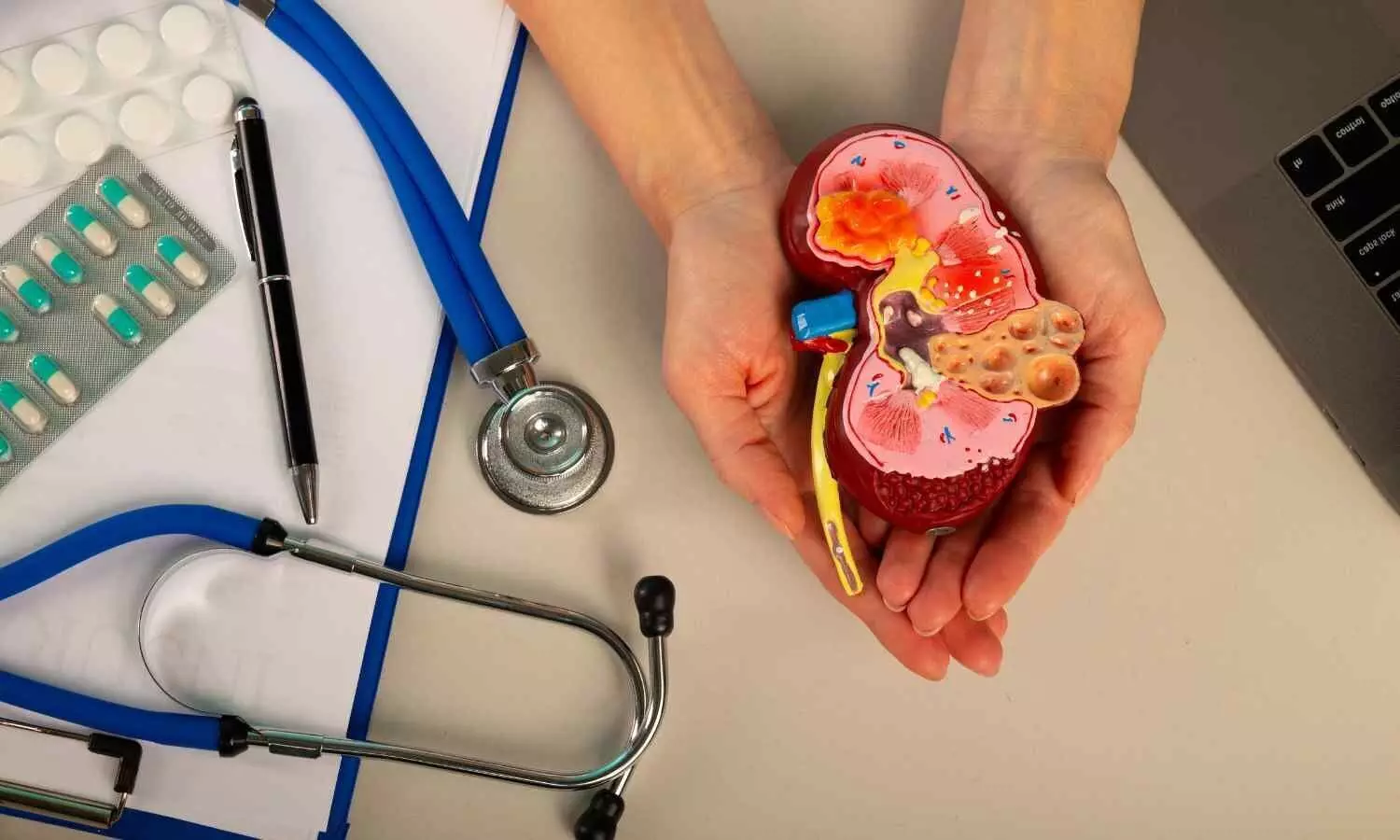Stem cells may offer new hope for end-stage kidney disease treatment, suggests research
- byDoctor News Daily Team
- 28 September, 2025
- 0 Comments
- 0 Mins

More than 4 million people worldwide have end-stagekidney diseasethat requireshemodialysis, a treatment in which a machine filters waste from the blood. Hemodialysis is a precursor tokidney transplant. To prepare for it, patients typically undergo surgery to connect an artery and a vein in the arm, creating an arteriovenous fistula (AVF) that allows blood to flow through the vein for treatment. However, AVF fails about 60 percent of the time due to vein narrowing. This is a major barrier to effective treatment. Mayo Clinic researchers found that transplanting patients' own stem cells from fat cells into the vein often helped prevent inflammation and vein narrowing. This could help millions of people with end-stage kidney disease tolerate dialysis longer, extending the time before they require a kidney transplant. That is because these adult stem cells called mesenchymal stem cells secrete healing growth factors that appear to be effective for certain patients with an AVF, according to Sanjay Misra, M.D., a Mayo Clinic interventional radiologist and senior author of the study published in Science Translational Medicine. "Mesenchymal stem cells have anti-inflammatory properties," he says. "Inflammation is a significant problem, especially in Western society, because it's a hallmark of a lot of medical problems: heart disease, vascular disease, hypertension, high cholesterol and cancer. They are all driven by inflammation." In this study, 21 participants received AVFs as part of a phase I clinical trial. Eleven participants were injected with their own fat-derived mesenchymal stem cells before AVF surgery; 10 were part of the control group. The AVFs healed faster and were more durable in most of those who received the stem cells. However, not everyone responded to them. "We were surprised by these differences in response to the mesenchymal stem cells. This spurred us to delve further into our research and include preclinical models and RNA sequencing technology," says lead author Sreenivasulu Kilari, Ph.D. The researchers identified specific anti-inflammatory gene factors in those who responded well to the stem cells. They say these genetic biomarkers could help predict which patients are most likely to benefit from this stem cell application and help inform personalized treatment options. The researchers hope to garner more information through larger clinical trials. "This approach has the potential to improve outcomes for millions of patients with kidney failure, reduce healthcare costs and inform new clinical guidelines for dialysis access management if validated in larger clinical trials," says Dr. Misra. Sreenivasulu Kilari et al. ,Periadventitial delivery of mesenchymal stem cells improves vascular remodeling and maturation in arteriovenous fistulas.Sci. Transl. Med.17,eadp7723(2025).DOI:10.1126/scitranslmed.adp7723
Disclaimer: This website is designed for healthcare professionals and serves solely for informational purposes.
The content provided should not be interpreted as medical advice, diagnosis, treatment recommendations, prescriptions, or endorsements of specific medical practices. It is not a replacement for professional medical consultation or the expertise of a licensed healthcare provider.
Given the ever-evolving nature of medical science, we strive to keep our information accurate and up to date. However, we do not guarantee the completeness or accuracy of the content.
If you come across any inconsistencies, please reach out to us at
admin@doctornewsdaily.com.
We do not support or endorse medical opinions, treatments, or recommendations that contradict the advice of qualified healthcare professionals.
By using this website, you agree to our
Terms of Use,
Privacy Policy, and
Advertisement Policy.
For further details, please review our
Full Disclaimer.
Recent News
AbbVie concludes acquisition of Gilgamesh Pharma B...
- 21 October, 2025
Dr Soumya Swaminathan conferred Honorary Doctorate...
- 21 October, 2025
Bengaluru Dermatologist Sent to Judicial Custody A...
- 21 October, 2025
Daily Newsletter
Get all the top stories from Blogs to keep track.


0 Comments
Post a comment
No comments yet. Be the first to comment!